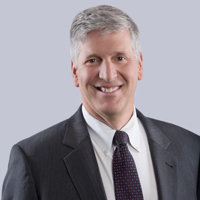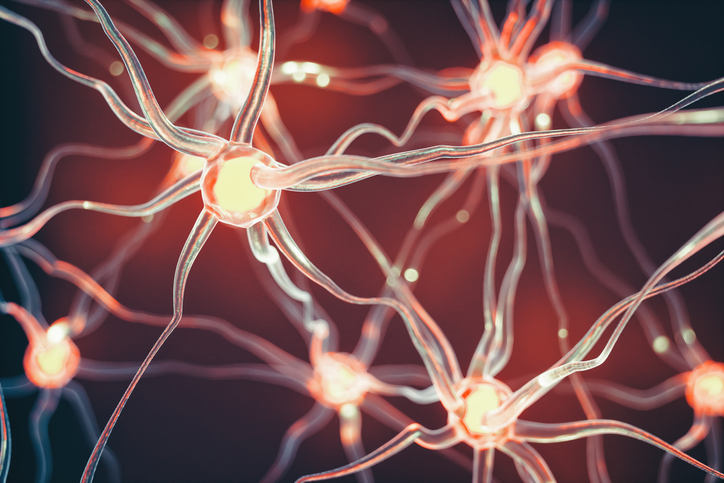
Helius Medical Technologies (NASDAQ:HSDT; TSX:HSM) is transitioning from a development- to commercial-stage company as it rolls out its Health Canada-cleared PoNS medical device for the treatment of chronic balance deficit due to mild-to-moderate traumatic brain injury (mmTBI), in conjunction with physical therapy.
“Our PoNS (Portable Neuromodulation Stimulator) represents a first mover advantage, with demonstrated safety and efficacy, in a market with few viable options,” Philippe Deschamps, chairman, president and CEO, says in an interview with BioTuesdays.
“After an initial medical event, very often a car accident, TBI can present significant long-term disabilities and challenges to the individual, family, and society,” Mr. Deschamps points out. “After an initial course of physical therapy, the standard of care, patients very often plateau in their recovery and thereafter, are disabled to some extent for the rest if their lives.”
In mmTBI, about two-thirds of individuals will recover spontaneously in two-to-three months from a mild-to-moderate concussion, for example. But some 30% of patients will have a chronic disability, such as chronic balance deficit. When physical therapy ends for this group, they tend to lose whatever recovery has been achieved and drift back to their original state of disability, he says.
Mr. Deschamps explains that PoNS is designed to stimulate the brain’s ability to heal from trauma, in conjunction with physical or cognitive therapy, by enhancing a process known as neuroplasticity.
A mild-to-moderate TBI damages part of the brain, reducing the ability of its neural impulses to communicate clearly with the body. He says that to restore balance and function, the brain needs to be “rewired” to work around the damaged area and reestablish neural impulses to the body.
“This rewiring is called neuroplasticity and we think we achieve this change by neuromodulation,” he adds.
 Tongue Based Neuromodulation
Tongue Based Neuromodulation
Mr. Deschamps contends that PoNS gently stimulates the trigeminal and facial nerves by stimulating the tongue with a small electrical charge to activate neuroplasticity in the brain, unlocking its ability to restore lost function. “We are a neurotech company in the medical device industry focused on neurological wellness.”
 The PoNS device
The PoNS device
In its long-term clinical treatment study, Helius achieved significant and sustained improvement in patients who had plateaued in their recovery after physical rehab and who had an average Sensory Organization Test (SOT) score of 40, which is profoundly disabled, Mr. Deschamps says. A normal balance SOT score is 70-to-80.
“When we looked at the literature, we determined that the maximum benefit from physical therapy alone was a SOT score improvement of 10-to-13 points and that further spontaneous recovery was unlikely,” he recalls.
In Helius’ TBI registration trial, 71.6% of subjects responded to PoNS treatment and physical therapy, and 53.7% achieved a normal range for balance. “Patients in the trial had an average 27-point improvement in their SOT score, a faster and more robust change than had ever been seen in the literature for physical therapy alone,” Mr. Deschamps says.
Helius used the trial data to obtain Health Canada clearance in October 2018 and treated its first patient in March. The company also submitted a CE Mark application in December and hopes to receive European clearance later this year. In May, Helius filed for approval with the Therapeutic Goods Administration in Australia.
However, the FDA denied the company’s request for a de novo classification and 510(k) clearance of PoNS in April, citing an inability to ascertain the relative independent contributions of physical therapy and the PoNS device to the observed improvements in the balance of the company’s trial participants.
At the same time, the FDA acknowledged that there were no device-related serious adverse events in either of the company’s two clinical trials.
Mr. Deschamps says Helius recognizes the importance of generating new clinical data demonstrating the independent contribution of physical therapy alone in its treatment protocol in order to demonstrate the overall impact of PoNS on participants.
As a result, Helius proactively decided to initiate a study to generate the physical therapy alone data, he adds. The new study protocol will use the same design as the TBI 001 study, including a five-week treatment period and the same inclusion and exclusion requirements. Helius also has identified clinical sites for the study and expects to begin enrolling participants by the end of July 2019.
“We remain committed to generating data to pursue FDA clearance of our PoNS device in order to bring this innovative therapy to more than 1.5 million Americans suffering from chronic balance deficit due to mmTBI,” Mr. Deschamps says.
The company’s methods of use patents extend until 2028, while utility and design patents run until 2035. “We believe this represents a significant barrier to competitor entry,” he suggests.
According to Helius, there are more than 350,000 people in Canada with chronic balance deficit caused by mmTBI, representing a large initial market.
Last October, Helius formed a joint venture with HealthTech Connex to form a new operating entity, called Heuro Canada, to develop and manage neuroplasticity clinics in Canada for the PoNS treatment.
The venture opened two original clinics in Montreal and Surrey, British Columbia and is adding three clinics in Toronto, Calgary and Ottawa during the second half of 2019. The five clinics represent major metropolitan areas that cover more than 50% of Canada’s population.
For all of 2019, Helius is guiding for revenue in a range of $1.6-million to $2-million (U.S.) based on its two founding clinics in Canada. The company expects to generate revenue of about $18,000 (Canadian) per device delivered to the Canadian clinics in 2019.
“We are initially targeting patient segments that are cash pay and workers compensation plans via direct-to-patient digital campaigns and partnerships with patient advocacy groups,” Mr. Deschamps says.
Helius also is engaging with key opinion leaders and professional societies to reinforce the scientific basis for PoNS; incorporate PoNS into Canadian health system guidelines; and pave the way for reimbursement from commercial and government payers.
Regarding its pipeline, Mr. Deschamps says Helius has generated pilot data in patients with multiple sclerosis and stroke, and registry data in cerebral palsy, which “represent other potential indications for PoNS.” Further down the road, the company sees a potential for PoNS to treat people with post-traumatic stress disorder, facial nerve palsy, depression and Parkinson’s disease.
“With our non-invasive PoNS platform, we remain committed to expanding treatment options for patients by amplifying the brain’s ability to heal itself,” he adds.
• • • • •
To connect with Helius, or any of the other companies featured on BioTuesdays, send us an email at [email protected].






